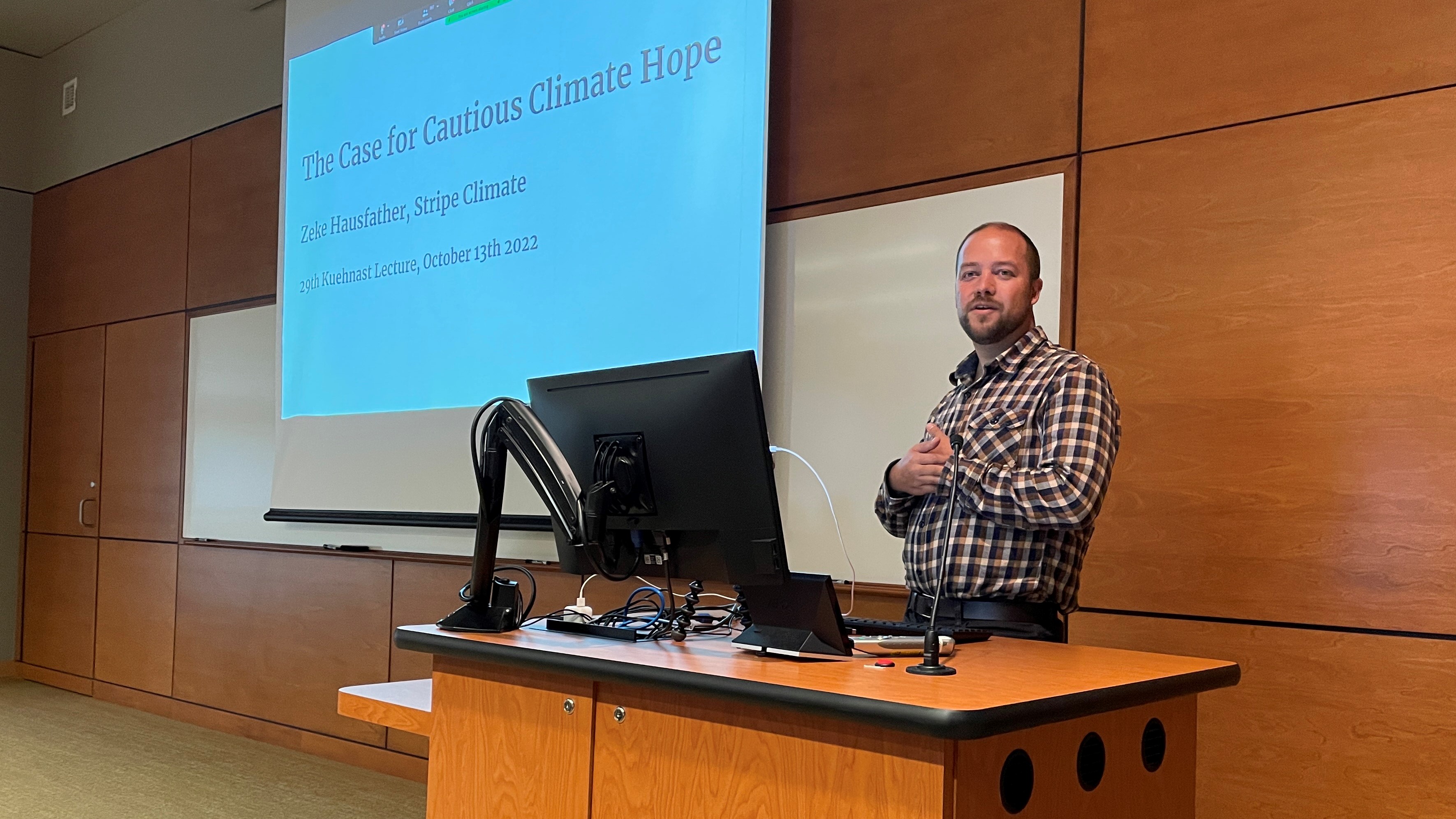
On Thursday, the Department of Soil, Water, and Climate held the 29th annual Kuehnast Lecture, part of a lecture series on meteorology and climatology. The invited speaker, climate researcher Zeke Hausfather, PhD, presented the case for cautious climate hope. “We can both acknowledge that we have made progress in avoiding the worst climate futures, but also that we still have a long way to go, ” said Hausfather in the introduction of his lecture.
The Cargill Building seminar room was filled with an enthusiastic crowd of researchers, students, and the public; an additional 200 people attended via Zoom. The lecture was preceded by short remarks by professor and head of Soil, Water, and Climate Carl Rosen, professor emeritus Mark Seeley, professor and interim associate dean for research and graduate programs Milena Saqui Salces, and professor and chair of the Kuehnast Lecture committee Peter Neff. A recording of the lecture is available to view.
“What I see out there, especially among young people, is a lot of climate despair,” began Hausfather. His statement echoes the findings of the recent CFANS Insights survey, which found that 85 percent of Gen Zers are concerned about climate change. However, this despair doesn't account for recent progress.
Throughout his lecture, Hausfather shared clips from an animated video called “We WILL Fix Climate Change.” The video was created by Kurzgesagt with input from Hausfather, and tells the story of climate optimism.
Hausfather cites advances in clean energy and other technologies over the past decade as parts of the solution to climate change, including carbon removal technologies, solar panels, and electric vehicles. “There are no silver bullets, only silver buckshot,” said Hausfather, quoting climate activist Bill McKibben.
The message of hope was well received, especially by graduate students in attendance. “It’s easy to become pessimistic about climate change, so it was reassuring to see data suggesting that we’ve not only already made some progress combating climate change, but that we have the tools and capacity to mitigate the worst outcomes with continued efforts,” said Demie Huffman. Megan Andersen added, “For scientists, having this data provides ample evidence to be optimistic about the future of our climate. And if scientists have cautious climate hope, that has implications on society's outlook for the future.”
